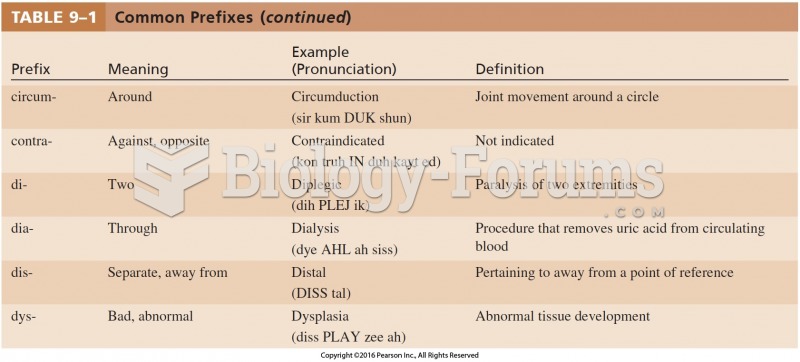|
|
|
It is difficult to obtain enough calcium without consuming milk or other dairy foods.
More than 150,000 Americans killed by cardiovascular disease are younger than the age of 65 years.
One way to reduce acid reflux is to lose two or three pounds. Most people lose weight in the belly area first when they increase exercise, meaning that heartburn can be reduced quickly by this method.
A strange skin disease referred to as Morgellons has occurred in the southern United States and in California. Symptoms include slowly healing sores, joint pain, persistent fatigue, and a sensation of things crawling through the skin. Another symptom is strange-looking, threadlike extrusions coming out of the skin.
Earwax has antimicrobial properties that reduce the viability of bacteria and fungus in the human ear.







